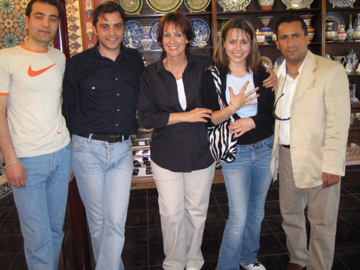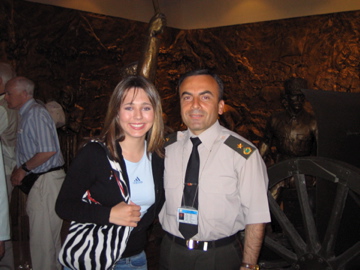How to make sense of radical Islamic terrorism? This violence is barbaric – but it is not senseless. When you understand the society from which savagery has sprung, the cold logic behind these attacks becomes all too apparent.
| Image: Smoke rises from the Westgate Mall |
Brendon O’Niell says it is time to recognize the sheer barbarity of 21st century Islamic terror attacks:
“In Western news-making and opinion-forming circles, there’s a palpable reluctance to talk about the most noteworthy thing about modern Islamist violence: its barbarism, its graphic lack of moral restraint. This goes beyond the BBC’s yellow reluctance to deploy the T-word terrorism in relation to the bloody assault on the Westgate shopping mall in Kenya at the weekend. Across the commentating board, people are sheepish about pointing out the historically unique lunacy of Islamist violence and its utter detachment from any recognisable moral universe or human values. We have to talk about this barbarism; we have to appreciate how new and unusual it is, how different it is even from the terrorism of the 1970s or of the early twentieth century. We owe it to the victims of these assaults, and to the principle of honest and frank political debate, to face up to the unhinged, morally unanchored nature of Islamist violence in the 21st century.” [1]
I applaud Mr. O’Niell’s frankness. Islamic terrorist groups like Al-Shabaab are savage, barbaric, and evil. Period. They should be seen by all and denounced by all as the monstrous brutes that they have become. Civilization has a pale; this lies beyond it.
But stating this is not enough. We cannot simply name a man a monster — we must try to understand why so many men want to be monsters in the first place. O’Niell is less helpful here:
“Time and again, one reads about Islamist attacks that seem to defy not only the most basic of humanity’s moral strictures but also political and even guerrilla logic…. consider the attack on Westgate in Kenya, where both the old and the young, black and white, male and female were targeted. With no clear stated aims from the people who carried the attack out, and no logic to their strange and brutal behaviour, Westgate had more in common with those mass mall and school shootings that are occasionally carried out by disturbed people in the West than it did with the political violence of yesteryear.” [2]
There are problems with this line of thought. In his zeal to denounce Islamic terrorism O’Niell makes two errors: 1) He assumes that indiscriminate slaughter of ‘the young and old, black and white, male and female’ is a ‘new and unusual’ development in human history and 2) that the sheer barbarity of these acts ‘defy logic.’
Perhaps the Khwarazmians also thought the slaughter they witnessed was something new under the sun:
“The Mongols now entered the town and drove all the inhabitants, nobles and commoners, out on to the plain. For four days and nights the people continued to come out of the town; the Mongols detained them all, separating the women ï¬om the men. Alas! How many peri-like ones did they drag from the bosom: of their husbands! How many sisters did they separate from their brothers! How many parents were distraught at the ravishment of their virgin daughters!
The Mongols ordered that, apart from four hundred artisans whom they speciï¬ed and selected from amongst the men and some children, girls and boys, whom they bore into captivity, the whole population, including the women and children, should be killed, and no one, whether woman or man, be spared. The people of Merv were then distributed among the soldiers and levies, and, in short, to each man was allotted the execution of three or four hundred persons.” [3]

